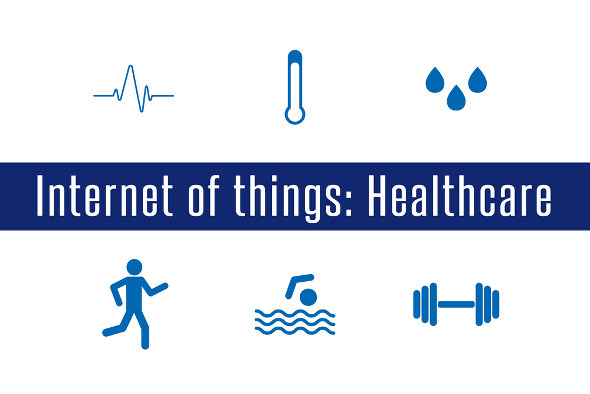The Internet has become the primary source of many things starting from the information collection to the shopping. Internet of Things (IoT) is a buzz word that is happening around the trends of the present and the future. The IoT is making a severe impact on almost every industry and the fact is no industry can deny the existence of Internet of Things. The competition is becoming stronger every day and businesses lagging behind are sure to get kicked out of the contest.
 IoT has made a significant mark in the healthcare industry improving the lives of millions and millions of people. As per the experts predictions, this industry is sure to reach $110 million mark by the end of 2020 and Apple & Samsung will be the major players in setting up this mark. These giants are driving things crazy helping healthcare professionals offer the best possible solutions to their patients. The traditional method of monitoring involves the doctors and patients to be at the same place but with the help of IoT sensors the patients can be at their home while the healthcare professionals can examine them right from the hospital. The benefits of IoT for the healthcare industry is endless, and the advancements are growing at a rapid pace to meet the future.
IoT has made a significant mark in the healthcare industry improving the lives of millions and millions of people. As per the experts predictions, this industry is sure to reach $110 million mark by the end of 2020 and Apple & Samsung will be the major players in setting up this mark. These giants are driving things crazy helping healthcare professionals offer the best possible solutions to their patients. The traditional method of monitoring involves the doctors and patients to be at the same place but with the help of IoT sensors the patients can be at their home while the healthcare professionals can examine them right from the hospital. The benefits of IoT for the healthcare industry is endless, and the advancements are growing at a rapid pace to meet the future.
The Internet of Things (IoT) is regulating almost every industry, and it is also revamping the healthcare services as the people have started using IoT for their health requirements. For example, the people can use the IoT devices to remind about the appointments, blood pressure variations, calories burnt and much more. The applications of IoT in the healthcare industry is never limited and here are few of the primary uses that shows how IoT have turned the face of the healthcare industry.
It is so obvious that the IoT is getting the required and projected reach, but the complete transformation never happens until everything in the place of the requirements. Here are some of the basic requirements when a healthcare organization is transforming towards an IoT environment.
Even though the Internet of Things have revamped most of the industry, its presence in the healthcare industry is just a few steps away, and it’s expected to happen in the later half of 2016. For the past two years, the IoT in the healthcare industry is priming, and now it is in the maturing stages as expected. Many partnerships that were stuck in 2015 promise the expansion of IoT in healthcare. Here are some of the highly expected happening in the IoT and healthcare industry.
Not only the enterprises in the private sector but also many government health authorities and institutes are moving towards IoT for management and transfer of patient data and information. The following chart shows how IoT is creating impact in the healthcare industry.
Stefan Groschupf, the CEO of Datameer said, “IoT moves from hype to substance. The Internet of Things has already emerged as the next mega-trend but in 2016, it will excel beyond the just hype. We will see companies actively change their strategy and infrastructure to harness the power and insight of IoT technologies and data.” 2016 is expected to be the year of IoT and the healthcare industry.